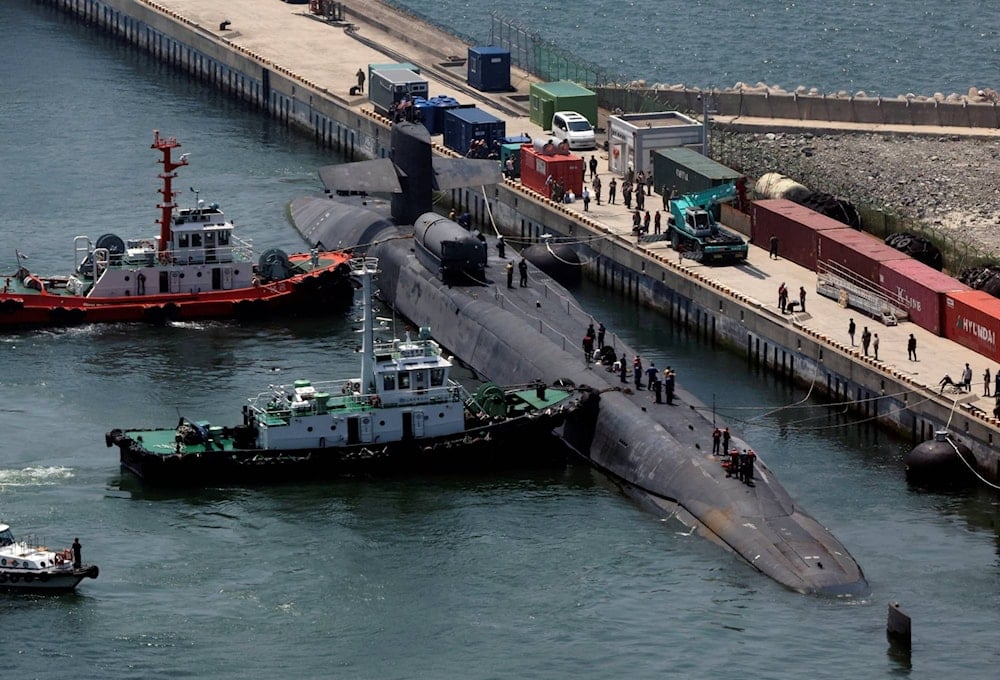Seoul could get nuclear submarines if needed: US Indo-Pacific chief
The US Indo-Pacific chief tells reporters that South Korea could introduce nuclear submarines if Seoul and Washington deem it necessary against the DPRK.
-

The nuclear-powered USS Michigan submarine, which can conduct strike missions using Tomahawk cruise missiles, docks at a naval base in Busan, South Korea, in June 2023 (Yonhap)
South Korea might acquire nuclear submarines in the future if Seoul and the United States deem it necessary against the Democratic People's Republic of Korea, the commander of US forces in the Indo-Pacific said.
The remarks made by Admiral Samuel Paparo came after President Yoon Suk-yeol visited the command’s headquarters in Hawaii last week during the Rim of the Pacific (RIMPAC) exercises around the island.
However, Paparo told South Korean reporters that this move is not needed now.
Read more: DPRK denounces NATO summit’s anti-Pyongyang declaration
“From the standpoint of submarine warfare, I think it’s important as allies and partners to find the most efficient and effective ways to combine our capabilities in ways that most effectively defend our alliances and partnerships,” he said.
“And if the operational analysis leads us to believe that, then we can move forward [with an ROK nuclear submarine] at a later date,” Paparo added, emphasizing that Washington and Seoul are “equal partners” and in constant talks via their Nuclear Consultative Group (NCG) on how to strategically deal with the DPRK's nuclear problem.
Read more: DPRK condemns drills by US, Japan, S. Korea as 'Asian NATO'
Meanwhile, the admiral added that the United States has no plans to relocate its personnel away from the Korean Peninsula, even if China "invades" Taiwan.
Last year, the US deployed the nuclear-powered guided missile submarine USS Michigan (SSGN 727) in Busan, South Korea, further aggravating tensions in the Korean peninsula.
This measure came shortly after the US and Seoul signed a bilateral declaration, in which Washington pledged to utilize all its capabilities, including nuclear ones, to "protect" Seoul.
The two allies have also conducted several comprehensive military drills in the past year, simulating large-scale bombing and invasion campaigns against the DPRK.
In response to the increased acts of aggression, the DPRK carried out dozens of test launches since 2023, firing short and long-range ballistic missiles.
Read more: China criticizes US ballistic missile deployment in Philippines

 2 Min Read
2 Min Read








